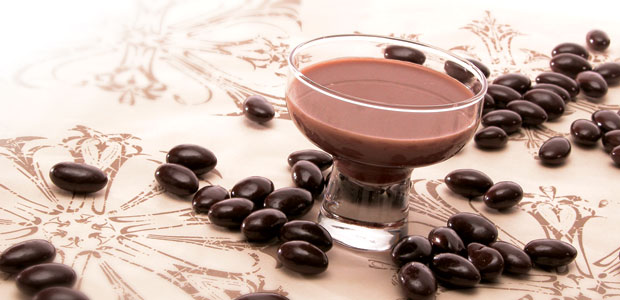Advertisement
Chocolate: Divine or Decadent?
Separating fact from fiction

The news about chocolate has been sweet lately. Its health benefits are now proudly touted by chocoholics who once indulged in it as a guilty, almost sinful pleasure.
A Real Heart-Throb
Research on the effects of dark chocolate on arterial function has shown that consuming chocolate provides a protective effect for the cardiovascular system, inhibiting platelet activity and increasing arterial blood flow. In June 2004, a study published in the Journal of the American College of Nutrition found that dark chocolate is a rich source of antioxidant flavonoids–more than blueberries, green tea, or red wine.
That heart-shaped box of chocolate, a romantic clich?now seems symbolic of its health benefits. There’s another connection between chocolate and the heart, however.
Is Chocolate a Drug?
Eating chocolate appears to have an emotional component: some people say they eat chocolate to lift their spirits.
Chocolate does contain a number of chemical substances that act as stimulants, increasing the activity of neurotransmitters and unleashing endorphins in the brain. Caffeine, phenylethylamine, and theobromine, found in chocolate, can offer the chocolate eater a lift. Anandamide, another chemical in chocolate, appears to trigger a “feel-good” sensation in the brain not dissimilar to that which marijuana produces (on a much-reduced scale, of course). And chocolate is also a rich source of magnesium; deficiencies of this mineral have been linked to depression.
Can chocolate heal a broken heart? Maybe. All of these chemical substances are found in minute amounts in chocolate, and some are also found in other foods, including pickled herring and cheese. No one in their right mind would give their lover a heart-shaped box of pickled herring, but there is a persistent, historical connection between chocolate and love.
Food of the Gods
The cacao tree was domesticated by the Olmecs, whose civilization dominated Central America 3,000 years ago. It was the later Aztec civilization, however, that raised chocolate (they called it xocoatl) to its status as an elixir fit for god-kings like Montezuma, who was thought to drink it as an aphrodisiac. Herein may lie the origins of the chocolate/love connection.
The Latin botanical name for the plant that gives us chocolate, Theobroma cacao, means food of the gods. The Spanish colonizers changed the spicy, bitter Aztec recipe for chocolate (which included chili peppers) when they brought it back to the Old World. They added sugar, cinnamon, and vanilla to the ground cacao bean to create a drink more like the comforting, sweet beverage we enjoy today, but like the Aztecs, they continued to believe it had healing powers.
Dark Secrets
If you’re going to consume chocolate for its health benefits, ensure it’s dark chocolate. Your dose of Theobroma should contain at least 70 percent cocoa solids; that’s where you’ll find the health-promoting antioxidants. Moderation is also key; both dark and milk chocolates are high in fat and carbohydrates.
This Valentine’s Day, what could be more romantic than sharing the (heart-healthy) food of the gods with the one you love?




